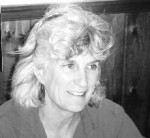Championing civil union case
In front of a handful of students and several faculty and community members, David Moats recounted the events that led up to his Pulitzer Prize award and his book deal.Moats, the Rutland Herald editorial editor, wrote a series of editorials documenting the legislature’s battle over whether same-sex partners should have equal rights in a civil union.
“The topic hit close to home,” said Lisa Pleban, physical education professor who said she went to Canada with her partner for a true marriage. “It was nice to hear from original source about the process [of writing his editorial series].”
Moats was invited to speak in Herrick Auditorium on Feb. 27 by Librarian Sandy Duling and Journalism Professor David Blow. Moats joined former speakers including New York Times columnist Tom Wicker and Castleton Professor Joyce Thomas in the Vermont Authors Series lined up by the library to talk at Castleton.
“I’m pleased to have met him and heard him talk,” Duling said of the Pulitzer Prize winner, explaining that seeing Moats’ speech made her realize how carefully he crafted his editorials.
When the state around him was in conflict about civil rights, Moats used his editorials to be a “thinking citizen” rather than a persuader or an attacker of the other side.
“The fact that somebody in the mainstream media would report civil rights in a fair and balanced manner is important,” Pleban said after the talk.
Throughout the days of the legislative debate, Moats followed the issue like other Vermont citizens, from the newspaper. But he wrote over 20 editorials reasoning out what the next moves of the legislature should be.
While receiving both hate and fan mail, Moats had to decide as editor which ones would make it to the op-ed page. Sometimes the issue threatened his motto to “keep it cool,” especially when even those in the newsroom with him began to think he overplayed the issue. He felt, however, that he “gave it the attention it deserved.”
Having relatively more freedom than a writer at a bigger paper, Moats was able to write his opinion, while being mindful that his editorials also reflected the overall newspaper’s belief.
This gave him more leeway in his writing, leading a colleague to notice that he was “writing with a greater passion” on this issue. This became one of the reasons he submitted 10 of his articles for Pulitzer Prize, noting that if he was going to have a chance at the coveted prize, it would be through this issue.
Months later, Moats was leaked word that he won the Pulitzer three days before the official announcements were released.
“It validated everything they’ve been through,” Moats said of the gay population.
Soon afterward, he received a book deal and became a spokesman for gay and lesbian rights, giving interviews on the issue and talks about how he landed in the position to write these serials of editorials.
“This is how history happens,” Moats said, explaining that it takes ordinary people to fight. “Individuals change the course.






